CA. Sujit Kumar Sinha
Deduction under section 80CCG a new scheme was introduced to encourage flow of saving in financial instruments and improve the depth of domestic capital market. However, it also aims to promote an ‘equity culture’ in India. This is also expected to widen the retail investor base in the Indian securities markets and further the goal of financial stability and financial inclusion.
The Scheme is named after the former Prime Minister of India Shri. Rajiv Gandhi. The deduction under section 80 CCG was enacted in 2012. The broad provisions of the Scheme and the income tax benefits under it have already been incorporated as a new Section -80CCG- of the Income Tax (IT) Act, 1961, as amended by the Finance Act, 2012.
 This concept was introduced in India in the finance Act,2012. Finance Act,2012 introduced a new scheme under “ Chapter VI A” to provide for a one time deduction to a resident individual who acquires listed equity shares in a previous year in accordance with a scheme notified by the Central Government. SEBI vide circular no. CIR/MRD/DP/32/2012 dated December 06, 2012 directed inter-alia Mutual Funds to take a note of RGESS notification and take necessary steps to implement the RGESS. In the Finance Act, 2013, certain conditions of RGESS were liberalized. Ministry of Finance thereafter vide Notification no. 94/2013 F. No. 142/35/2012 -TPL dated December 18, 2013 notified RGESS, 2013 i.e. the amended RGESS.
This concept was introduced in India in the finance Act,2012. Finance Act,2012 introduced a new scheme under “ Chapter VI A” to provide for a one time deduction to a resident individual who acquires listed equity shares in a previous year in accordance with a scheme notified by the Central Government. SEBI vide circular no. CIR/MRD/DP/32/2012 dated December 06, 2012 directed inter-alia Mutual Funds to take a note of RGESS notification and take necessary steps to implement the RGESS. In the Finance Act, 2013, certain conditions of RGESS were liberalized. Ministry of Finance thereafter vide Notification no. 94/2013 F. No. 142/35/2012 -TPL dated December 18, 2013 notified RGESS, 2013 i.e. the amended RGESS.
The deduction was 50 % of amount invested in such equity shares or ₹ 25,000, whichever is lower. The maximum Investment permissible for claiming deduction under RGESS is Rs. 50,000. The benefit is in addition to deduction available u/s Sec 80C.
The following conditions had to be satisfied for claiming the above deduction under section 80CCG for A.Y. 2013-14 :-
a) The gross total income of the assessee for the relevant assessment year should be less than or equal to ₹ 10 lakh.
b) The assessee should be a new retail investor as per the requirement specified under the notified scheme.
c) The investment should be made in such listed investor as per the requirement specified under the notified scheme.
d) The minimum lock in period in respect of such investment is three years from the date of acquisition in accordance with the notified scheme.
In addition to the above, other conditions may also be prescribed , subject to fulfilment of which, deduction under section 80 CCG can be claimed. At present Rajiv Gandhi Equity Savings scheme,2012 has been notified under section 80 CCG [ Notification No.51/2012 dated 23.11.2012]
The Finance Act,2013 has amended the provisions of section 80 CCG w.e.f. AY 2014-15. After that benefit of deduction under section 80 CCG is available to a new investor, being a resident individual with gross total income of up to 12 lakh, for investment in listed equity shares or listed units of equity oriented fund, in accordance with a notified scheme
Further, the deduction shall be allowed for three consecutive assessment years, beginning with the assessment year relevant to the previous year in which the listed equity shares or listed units of equity oriented fund were first acquired.
The minimum lock in period in respect of such investment is three years from the date of acquisition are remain the same.
THEREFORE, the conditions under section 80 CCG for claiming deduction from Assessment year 2014-15 would be :–
ü The gross total income of the assessee for the relevant assessment year should be less than or equal to ₹ 12 lakhs.
ü The assessee should be a new retail investor as per the requirement specified under the notified scheme.
ü The investment should be in such listed equity shares or listed units of equity-oriented fund specified under the notified scheme.
ü The minimum lock in period in respect of such investment should be three years from the date of acquisition .
“New retail investor” means a resident individual,-
(a) who has not opened a demat account and has not made any transactions in the derivative segment before the date of opening of a demat account or the first day of the initial year, whichever is later:
Provided that an individual who is not the first account holder of an existing joint demat account shall be deemed to have not opened a demat account for the purposes of this Scheme; or
(b) who has opened a demat account but has not made any transactions in the equity segment or the derivative segment before the date he designates his existing demat account for the purpose of availing the benefit under the Scheme or the first day of the initial year, whichever is later;
Deduction under section 80 CCG can be claimed by a new retail investor shall make investment under the Rajiv Gandhi Equity Savings scheme,2013 has been notified [ Notification No.94/2013 dated 18.12.2013] in the following manner, namely :-
a) The new retail investor may invest in one or more financial years in a block of three consecutive financial years beginning with the initial year;
b) The new retail investor may make investment in eligible securities in one or more than one transaction during any financial year during the three consecutive financial years beginning with the initial year in which the deduction has to be claimed;
c) The new retail investor may make any amount of investment in the demat account but the amount eligible for deduction under the Scheme shall not exceed fifty thousand rupees in a financial year;
d) The new retail investor shall be eligible for the tax benefit under the Scheme only for three consecutive financial years beginning with the initial year, in respect of the investment made in each financial year;
e) If the new retail investor does not invest in any financial year following the initial year, he may invest in the subsequent financial year, within the three consecutive financial years beginning with the initial year, in accordance with the Scheme;
f) The eligible securities brought into the demat account, as declared or designated by the new retail investor shall be under a lock-in for a period of three years.
g) The eligible securities brought into the demat account, in respect of which the assessee is eligible for deduction under the Scheme, shall be under a fixed lock-in during the first year, as per the provisions of scheme, unless the new retail investor specifies otherwise, and for such specification, the new retail investor shall submit a declaration in Form B, either in electronic or physical form, to the depository participant indicating that such securities are not to be included within the above limit of investment;
h) The new retail investor shall be eligible for a deduction under sub-section (1) of section 80CCG of the Act in respect of the actual amount invested in eligible securities and in respect of which a declaration in Form B has not been made, subject to the maximum investment limit of fifty thousand rupees in a financial year;
i) The new retail investor who has claimed a deduction under sub- section (1) of section 80CCG of the Act in any assessment year shall not be allowed any deduction under the Scheme for the same investment for any other assessment year;
j) The new retail investor shall be permitted a grace period of seven trading days from the end of the financial year so that the eligible securities purchased on the last trading day of the financial year also get credited in the demat account and such securities shall be deemed to have been acquired in the financial year itself;
k) The new retail investor can make investments in securities other than the eligible securities covered under the Scheme and such investments shall not be subject to the conditions of the Scheme nor shall they be counted for availing the benefit under the Scheme;
l) The deduction claimed shall be withdrawn if the lock-in period requirements of the investment are not complied with or any other condition of the Scheme is contravened by the new retail investor.
Effect of failure to fulfill conditions. –
(1) If the new retail investor fails to fulfill any of the provisions of the Scheme, the deduction originally allowed to him under sub-section (1) of section 80CCG of the Act for any previous year, shall be deemed to be the income of the assessee of the previous year in which he fails to comply with the provisions of the Scheme and shall be liable to tax for the assessment year relevant to such previous year.
(2) Without prejudice to the provisions of sub-paragraph(1), where the demat account is not in compliance with the conditions laid down in respect of flexible lock-in period, the deduction originally allowed to the investor under section 80CCG shall be liable to tax in the following manner, namely:-
a) If the investment portfolio in flexible lock-in period corresponds to the investments made in only one assessment year, the deduction allowed to the investor under section 80CCG for such assessment year shall be liable to tax;
b) If the investment portfolio in flexible lock-in period corresponds to the investment made in two assessment years, and–
- the value of investment portfolio of eligible securities in the demat account is equal to or more than the value of the investment portfolio of the eligible securities in respect of which the deduction was allowed for any one assessment year but is less than the aggregate value of the investment portfolio of the eligible securities in respect of which the deduction was allowed for the two assessment years for 270 days in the flexible lock-in period, the deduction allowed to the investor under section 80CCG for the other assessment year shall be liable to tax;
- is not covered by above clause, the aggregate deduction allowed to the investor under section 80CCG for both the years shall be liable to tax. Explanation.-It is hereby clarified that in the case where the value of the investment portfolio of eligible securities is more than the corresponding value of such securities in respect of which deduction has been claimed in either of the two financial years, the deduction corresponding to the financial year in which the value of investment portfolio of eligible securities is less, shall be liable to tax.
A new retail investor who has invested in accordance with the Rajiv Gandhi Equity Savings Scheme, 2012 shall continue to be governed by the provisions of that Scheme to the extent it is not in contravention of the provisions of this Scheme and such investor shall also be eligible for the benefit of investment made in accordance with this Scheme for the financial years 2013-14 and 2014-15.
Example:-
Mr A, new retail investor, have made the following investment in equity share/units of equity oriented fund of Rajiv Gandhi Equity Savings Scheme for the Previous year 2012-13,2014-15 and 2015-16 as below :
| Particulars | P.Y 2013-14 | P.Y 2014-15 | P.Y 2015-16 |
| Investment in listed equity shares | ₹ 15,000 | ₹ 42,000 | ₹ 30,000 |
| Investment in units of equity oriented fund | ₹ 45,000 | ₹ 12,000 | |
| Sale of all units of equity oriented fund purchased in P.Y 2013-14 | ₹60,000 | ||
| Gross Total Income (comprising of salary income and bank interest) | ₹11,50,000 | ₹11,75,000 | ₹12,25,000 |
| Deduction under section 80 CCG | ₹ 25,000 | ₹21,000 | Nil |
| Remark | (Restricted to 50 % of ₹ 50,000) | (Restricted to 50 % of ₹42,000) | (Not eligible since GTI exceeding ₹12,00,000 |
| Amount liable to tax (on account of violation of condition) | ₹ 22,500 | ||
Note :- Since the deduction under section 80 CCG was not allowed during the P.Y 2015-16 on account of the Gross Total Income exceeding ₹ 12 lakhs, no amount relating to that year can be subject to tax in the P.Y.2012-15, being the year of violation of condition, even though the units were sold within 3 years. However a deduction of ₹ 22,500 (50 % of ₹45,000) was allowed under section 80 CCG in respect of investment of ₹15,000 in units of equity oriented fund in the P.Y,2013-14. Since such units have been sold in the P.Y. 2014 -15, the condition under section 80 CCG has been violated and ₹ 22,500 would be subject to tax in the P.Y.2014-15.
Differences with ELSS
Equity Linked Savings Scheme (ELSS) and RGESS are entirely different schemes: They pertain to different asset classes with ELSS offering passive investment avenues. ELSS is meant for indirect participation in the stock market, whereas RGESS aims at encouraging direct participation in the stock market. The operational differences are given below:
|
Operational differences |
|
|
ELSS |
RGESS |
| Investments are in mutual funds which invests mostly in equity (80-100% in equity) | Investments are to be made directly in selected equity or into a combination of equity including mutual funds, Exchange Traded Funds, and select IPOs of PSUs |
| 100% deduction (upto Rs. 1,00,000) is allowed under ELSS | Only 50% deduction (upto max. of Rs. 25,000 per year) is allowed under RGESS. However, this benefit can be claimed for the first three years of investments |
| The ELSS benefit is coming under Section 80-C of the IT Act which has an aggregate limit of Rs. 1,00,000 for all such eligible instruments like LIC policy, PPF etc | Separate investment limit exclusively for RGESS over and above the Section 80 C Limit |
| Lock-in period of 3 years | Lock-in of 3-years. However, trading allowed after one-year subject to conditions. |
| Since investments are in mutual funds, it is perceived to be less risky | Since investments are in equity / risk / ownership capital, risk is perceived to be higher |
Similar International Experiences
Fiscal incentives have been empirically established to encourage greater retail participation. International experience in countries where such schemes were implemented supports this notion. For example, Loi-Monory scheme introduced in France in 1978 was successful in significantly improving retail participation; the proportion of French households investing in listed securities rose from 7% to 17% during 1977-1982. Similar schemes were launched by other European countries, most notably Belgium and West Germany. Such a scheme in Sweden turned one sixth of the population into investors. All these exemplify the positive manner in which people of relatively modest means will respond to fairer tax treatment.
LOCK-IN PERIOD
i. The total lock-in period for investments under the RGESS would be divided into ‘fixed lock-in period’ and ‘flexible lock-in period’. The initial period of lock in shall be known as Fixed Lock-in Period, which shall commence from the date of purchase of such securities in the relevant financial year and end on the 31st day of March of the year immediately following the relevant financial year.
ii. The period of two years beginning immediately after the end of the fixed lock-in period shall be called the flexible lock-in period.
iii. Thus, upon completion of the fixed lock-in period, new retail investors would be allowed to trade in the eligible securities. Investors would, however, be required to maintain their level of investment during the next two years (i.e. the flexible lock-in period) at the amount for which they have claimed income tax benefit or at the value of the portfolio before initiating a sale transaction, whichever is less, for at least 270 days in each of these 2 years. Such investment value shall exclude the value of investment which is under the fixed lock-in period.
iv. The balance of the investment portfolio of Eligible Securities in the RGESS Demat Account, at any point of time during the flexible lock-in period, shall not be less than the amount corresponding to the value of the securities in the fixed lock-in.
v. The general principle under which trading is allowed is that whatever is the value of stocks / Units sold by the investor from the RGESS portfolio, RGESS compliant securities of at least the same value are credited back into the account subsequently.
vi. However, the investor is allowed to take benefits of the appreciation of his RGESS portfolio, provided its value, as on the previous day of trading, remains above the investment for which they have claimed income tax benefit.
vii. The Depositories will be required to ensure the enforcement of the lock-in on Units under the Scheme in terms of RGESS guidelines.






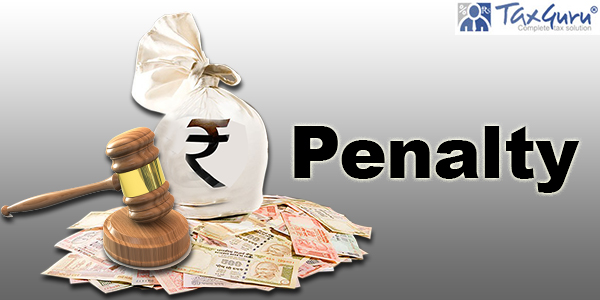



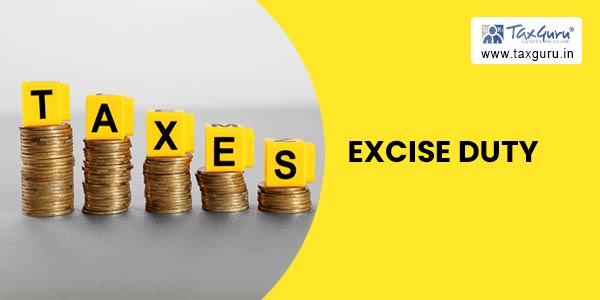





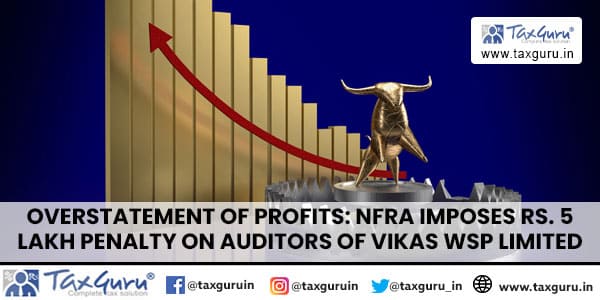

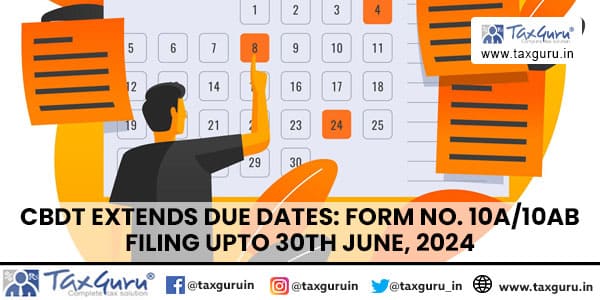
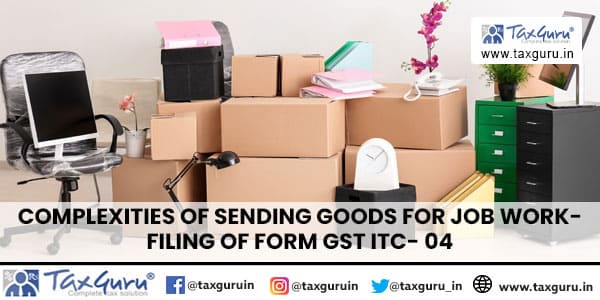



how can I invest now to get 80ccg benefit? Please guide.
Is this scheme/Section valid for financial year 2019-20?
Hello Sir,
I have a question on the benefit under section 80CCG. I understand that we can claim an exemption only for the first year upon the investment made and the following 2 years cannot be claimed. However, can we make a new investment altogether and claim that for the next year? Is this benefit just a one-time benefit for new retail investors.
Illustration, i purchase RGEES for the current tax year 2017-18 so tax exemption will be granted for the same Financial Year; 2018-19 and 2019-20 cannot be included for this exemption.
Now, can i claim for a new RGEES investment for tax year 2018-19, if i invest more money in the scheme will be locked for further 3 years and so on. Alternatively, are there any other similar funds except RGEES for exemption under 80CCG.
Your help and advise will be greatly appreciated.
Regards.
I invest in equity shares through equity SIP. It means I purchase equity shares of listed companies for Rs.10000/- to Rs.12000/- per month. Am I eligible for tax benefit of Rs.25,000/- under 80 CCG
for financial year 2016-17 asseseement year 2017-18. Please clarify and email me on the following email address: mulayji0@gmail.com
IS 80CCG BENEFIT AVAILABLE FOR INVESTMENTS UNDER NEW DEMAT ACCOUNT FOR FY 2015-2016 AND THEN CAN I CLAIM THIS BENEFIT FOR FY 2016-2017 & 2017-2018
its not 80ggc its 80ccg for RGESS
my gross salary is 18.67 lacks p.a. am i eligible for an exemption under this scheme??
is the RGESS scheme in operation even for FY 2015-16?
please advise for opening of new demat account in FY 15-16.
assessee has invested in RGESS in f.y. 12-13 rs. 50000 and claimed deduction of rs.25000. further he has invested rs. 50000 in f.y. 2013-14 whether he will be eligible for deduction of 25000/- u/s 80ccg in a.y. 14-15
Very Well Explained. Is any special documentation is required to prove that I am the First time investor?
You are really TAX GURU… GURU JI..
If i will invest 20,ooo in RGESS in first financial year,the rebate amount may be intimate please
Whether for three consecutive year one can not purchase other equity shares.
Whether the deduction of child can be taken by his father under this section if the child has invested into it??
what are the mutual fund in which we will get the deduction U/D this section ?
what are the mutual fund in which we will get this benifit under this section(list of mutual fund)?
Very well explained.I believe one should think about RGESS only after exhausting all other tax saving options,reducing the deduction to half makes it less efficient scheme.
can we apply for this tax exemption, if I use any other means of equity investment?
Whether U/S 80ccG rebate is admissible as per Budget submitted on dated 10.07.2014.
as I invested in May 14 can I claim rebate U/S 80ccG in this AY 2014-15
regard
sckataria
i need some pratical problem regaging section
Hi, Just wanted to know for investors who had invested between Nov 12 (i.e. RGESS became effective) to mar 13, will they be eligible for the deduction of 3 years?
1. Typographical error in ‘note’ may be corrected.
2. The article is silent on the conditions of trading of the investment.
Sextion 80ggc is for political party deduction. What you r talking off i guess is 80 ccf.
As per the calculation, Rs. 22500 is for violation of condition. But what will be the case, when both 1st year bought securities sold within lock in period.
Continue with the example : 1st year voiolation Rs. 22,550 + 2nd year voilation(sold equity share bought 15,000) 50% Rs. 7,500. Whereas actual benefit taken by the Assessee for Rs . 25,000 but due to voilation of condition, assessee might be paid Rs. 30000 (22,500+ 7,500). Rs. 5000 extra.
Scheme is silent about taking proportionate taking of benefit whether violation happened or not. If in the example 60,000 amount of invested securities take benefit of sec. 80CCG on proportionate basis (0.83 %) then the answer would be change what describe by the writer